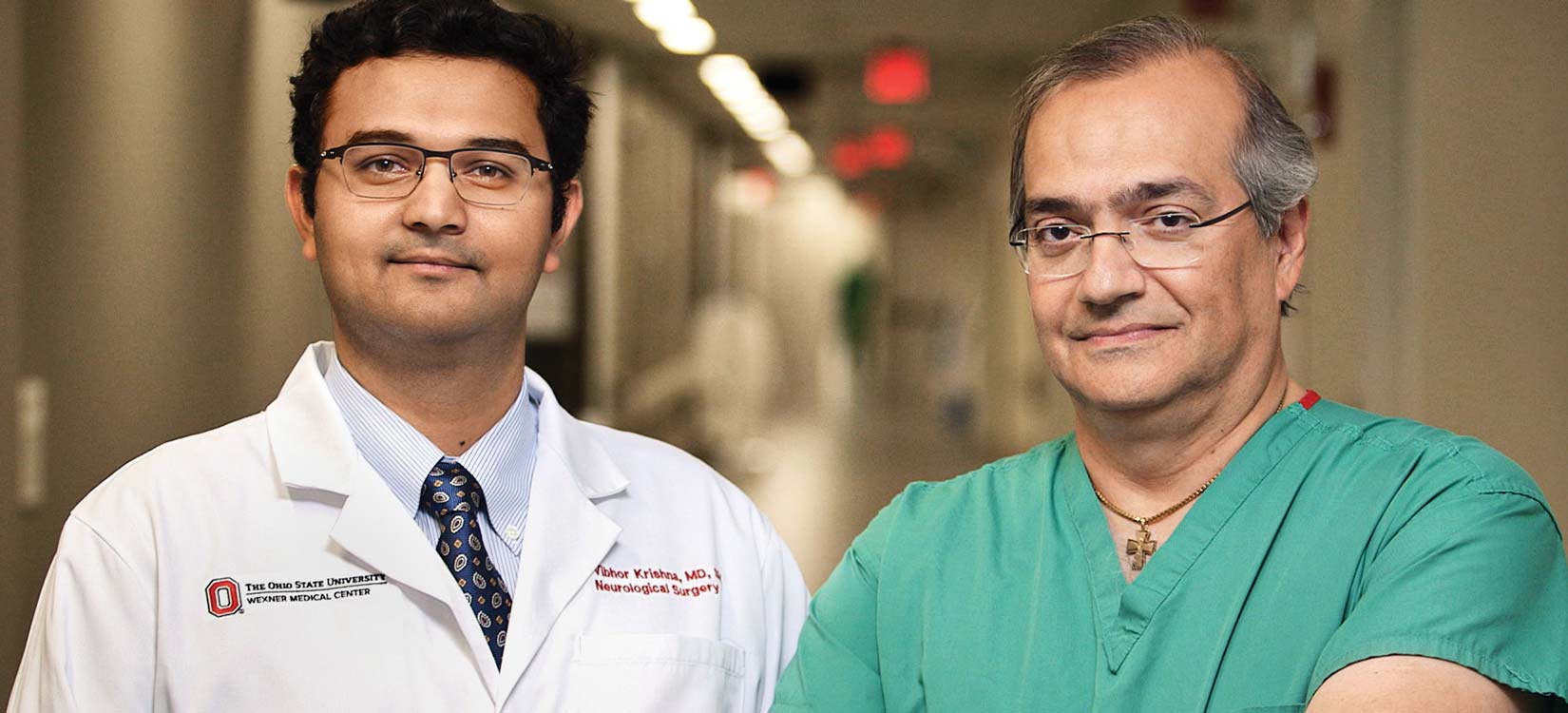Focused ultrasound ablation may be the next frontier of minimally invasive neurological surgery
 Researchers at the Center for Neuromodulation at Ohio State's Wexner Medical Center are embarking on the next frontier of targeted treatments using the brain as an interface. Innovative application of techniques that have been proven successful provides new hope for those who suffer from life altering and debilitating disorders.
Researchers at the Center for Neuromodulation at Ohio State's Wexner Medical Center are embarking on the next frontier of targeted treatments using the brain as an interface. Innovative application of techniques that have been proven successful provides new hope for those who suffer from life altering and debilitating disorders.
Deep brain stimulation (DBS) has been used to successfully treat thousands of patients who suffer from tremors and Parkinson's disease. DBS is a type of neuromodulation that uses implantable devices to provide electrical stimulation in order to alter nervous system activity.
Another method that is being evaluated as a neurological therapy option for Parkinson's and tremor is focused ultrasound ablation. Human tissue is exposed to focused ultrasound waves, which results in heat production and the formation of cavities within the tissue. Prolonged exposure of tissues to this high intensity sonographic energy creates these cavities as a consequence of the formation of gas bubbles, which burst and damage the tissue. Vibhor Krishna, MD, contrasts Gamma Knife radiosurgery to focused ultrasound ablation (FUS), indicating that FUS provides real-time monitoring and precise targeting, while being non-invasive.
Ohio State is just one of five centers in the United States that has the capability of performing FUS. Dr. Krishna asserts that the resources available at OSU's Wexner Medical Center, combined with the collaborative atmosphere created by investigators throughout the university, lay the foundation for innovative applications of advanced technologies in the treatment of neurological disorders.

